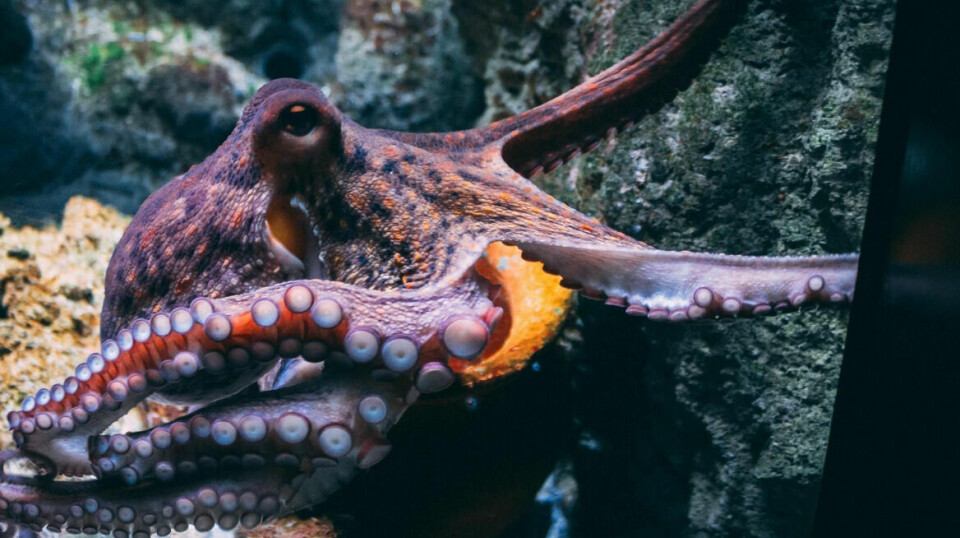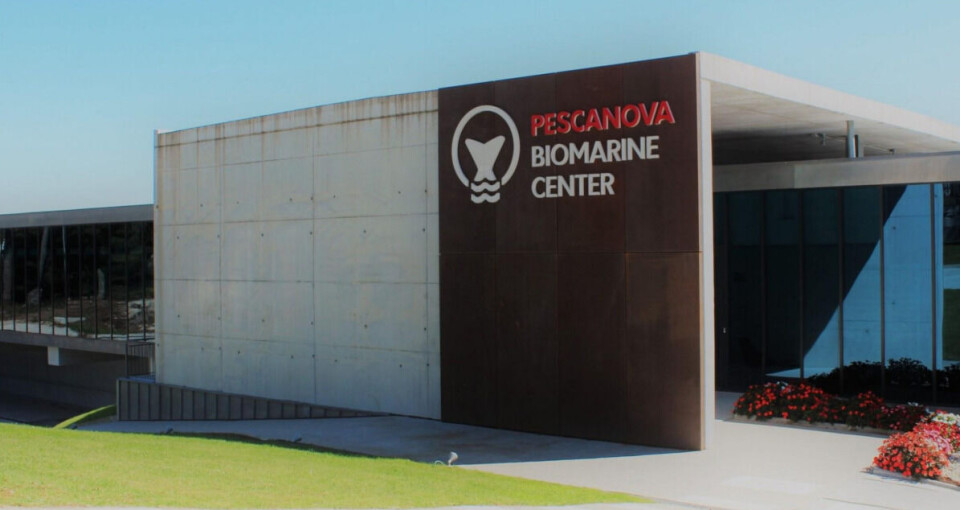
Canary Islands government urged to block plan for octopus farm
NGOs make fresh attack on project ahead of World Octopus Day
Opponents of a planned octopus farm in the Canary Islands have urged the islands’ government to reject an application for the project in the Port of Las Palmas, Gran Canaria.
Compassion in World Farming (CiWF) has written a letter to Canaries president Fernando Clavijo Batlle opposing the plan by Nueva Pescanova, a Spanish multinational company specialising in the fishing, farming, processing, and commercialisation of seafood products. The letter is signed by 76 NGOs and individuals, some of whom are scientists or have other academic roles.
CiWF plans a coordinated social media action aimed at the Canary Islands government on Sunday, which is World Octopus Day. In its letter, CiWF writes that over the last three years there has been increasing opposition to the development of octopus farming and that seafood certification labelling schemes RSPCA and Friend of the Sea (FOS) have announced that they will not certify farmed octopus products.
Unsuited to farming
The NGO claims: “It is important to stress that octopuses are wild animals profoundly unsuited to farming, and there are serious sustainability and animal welfare problems associated with this industry’s development.”
It adds: “As naturally solitary animals, octopuses would not fare well in the group conditions and high stocking densities typical of farming systems. These intelligent animals could not express their natural behaviours, confined in barren underwater tanks. Most importantly, there is currently no scientifically validated method for the humane slaughter of octopuses. According to reliable sources, Nueva Pescanova is planning to kill octopuses by submerging them in tanks containing water with ice, a method scientifically recognised for resulting in a painful, stressful, and slow death.”
CiWF further claims that octopus farming would require capturing large quantities of fish or other marine organisms to feed the farmed octopuses, exacerbating overfishing of oceans.
'Horrific reality'
That’s one of several accusations made by CiWF in a report - Uncovering the Horrific Reality of Octopus Farming - earlier this year that have been rebutted by Nueva Pescanova, which aims to produce 3,000 tonnes of octopuses per year, equating to about 1 million animals.
The CiWF report claims the octopuses will be “confined in tanks” and be “exposed to unnatural light 24 hours a day to increase reproduction”.
Neither claim is true, Nuevo Pescanova told Fish Farming Expert in March.
“Our priority is to guarantee animal welfare by applying the conditions of the species in the wild to the cultivation process,” the company said. It added that studies carried out by its own researchers and collaborators specialised in octopus demonstrated that by providing optimal culture/growing conditions (light, temperature, salinity, etc.) and an adequate diet for each of its phases, farmed octopuses adapt normally.
Optimal lighting
“As for constant light, this is not true. The lighting conditions developed are optimal in each phase of the octopus’ life cycle to promote well-being conditions, avoiding any type of stress,” said the company.
“On the issue that they will be confined in tanks, this is completely wrong. Depending on the phase octopuses are in their life cycle, they will live in different types of pools with different sizes, designed to provide the optimal conditions they need at each stage of their life.”
Pescanova, which operates more than 60 fishing vessels, said feed would contain discards and byproducts of fish caught for human consumption.
“Its effectiveness and assimilation has already been demonstrated and it is a circular economy solution that helps to avoid having to resort to fishing wild animals to feed the octopus,” said the company, which employs 12,000 people worldwide.
96-97% survival
The company also challenges a CiWF claim that octopus farming conditions would entail high mortality.
“The studies initiated in 2005 by the IEO of Vigo and the octopus fattening pond of Moaña, focused on achieving optimal crop densities, as well as knowing the conditions that affect the feeding and biology of the species, have allowed to obtain (in 2021) survival rates at the end of fattening of 96-97%,” it said.
CiWF’s report also highlighted the negative environmental impacts resulting from excessive energy use in the proposed on-land farm.
“The Canary Islands plant has been designed with minimal environmental impact in mind,” said Pescanova. “The plant has been sited in the Canary Islands precisely because its waters have the optimum temperature for octopus and not having to cool or heat the water for the plant means great energy savings.
“The design of the plant, the distribution of the pools and the water collection systems have been made maximising energy efficiency. When it operates it will be one of the most efficient aquaculture plants in Europe.”

Microbiome
Among other things, Nueva Pescanova has also researched the octopus microbiome.
It said that according to results obtained from sequencing methodology, the aquaculture production method does not seem to have a significant impact on the composition of the main microbiota associated with the skin of the common octopus (O. vulgaris).
This suggests that stable and controlled, pathogen-free environmental conditions in aquaculture facilities avoid stress for animals and can positively influence their health and welfare
“The phyla Bacteroidetes and Proteobacteria appear to compose the core microbiota of the skin of O. vulgaris, their abundance not differing between the wild and aquaculture groups. This suggests that stable and controlled, pathogen-free environmental conditions in aquaculture facilities avoid stress for animals and can positively influence their health and welfare.”
Further researcher indicates that octopuses do not synthesise or absorb corticosteroids and that therefore measuring vertebrate glucocorticoids in octopuses as bioindicators of stress has no meaning or value, said the company. It said its researchers have found miRNAs (small, single-stranded, non-coding RNA molecules) in octopus biofluid that have the potential to be used as bioindicators of stress is the species.
'A slow and painful death'
One of CiWF’s objections is that octopuses would be slaughtered by being put in containers of water kept at -3C, which the NGO claims would cause a slow and painful death.
Nueva Pescanova said: “The slaughter will also entail proper management to avoid any type of pain or suffering, strictly complying with European Union regulations, specifically Council Regulation EC 1099/2009, on the protection of animals, as well as the Spanish Standard AENOR UNE 173300: 2016, as a guide to good practices.
“As for the slaughter method, although it may be striking for those who are not familiar with the sector, this technique is the most commonly applied in the industry and is the option that seeks precisely to avoid the suffering of the animal.”






















































